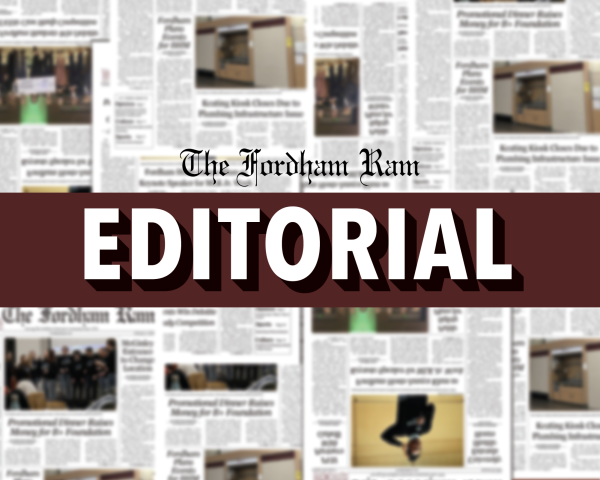Speak Up, But Not at Fordham
As per the university’s instruction, students who are working under the Office of Residential Life (ResLife) as Residential Assistants (RAs) are not allowed to speak to media or student-run press regarding matters related to ResLife.
The Fordham Ram is concerned about a recent development in the policy handed down by Dean Christopher Rogers, updating the instructions to prohibit RAs from speaking publicly about all Fordham-related issues, not just those specifically tied to ResLife. This information was confirmed by an RA who chose to remain anonymous.
Since Fordham is a private institution, it has the legal right to regulate the speech of its community members. However, their exertion of this right has been a point of contention for years.
In 2021, the Foundation for Individual Rights in Education (FIRE) ranked Fordham among its “10 Worst Colleges for Free Speech” after it had also ranked the university in its list in 2017 and 2018. While it managed to avoid being ranked in the 2022 list, being listed for nearly half of the past six yearly lists does not put Fordham in the clear regarding issues of free speech.
In the particular case of 2021, FIRE cited the university’s prohibition of a Students for Justice in Palestine (SJP) chapter as well as the university’s well-maintained and well-publicized legal defense against the student club for about five years now.
The history of the legal affair between SJP and the university is a years-long showcase of the extent to which the university actively suppresses student voices, as it has funded a well-equipped legal team to successfully appeal court rulings supporting the student organization’s existence. The university’s unwillingness to accept the club on campus and its active struggle against the student organization is one of the strongest, most recent examples of the university
Even university faculty members have criticized the university for the large financial expenditure undertaken in order to keep the legal case afloat.
At least one other student-led political organization on campus has had issues being recognized by the university: the Fordham chapter of the Young Democratic Socialists of America, whose application for official club status seemingly became stagnant during the administration review, while other club applications made around the same time were approved.
Additionally, in 2014, the student organization Students for Sex and Gender Equality and Safety (SAGES) decided to distribute condoms (alongside informational pamphlets) anonymously, fearing repercussions from the university, which prohibits the distribution of contraceptives on campus. The university publicly criticized SAGES via its social media pages for the Dean of Students Office. With a minimal platform, the club became inactive at the end of the spring 2020 semester.
Another well-known example of the university’s troubled relationship with “free speech” is the Austin Tong case. In this particular example, Tong, a student who posted an image of himself on Instagram holding a rifle in commemoration of the anniversary of the Tiananmen Square Massacre, was placed on academic probation and barred from entering campus by the university in 2020.
Tong’s vocal resistance to Fordham’s decision as well as his legal case against the university garnered national coverage from organizations including Fox News and the National Rifle Association as an issue regarding free speech.
Free speech at Fordham is a bipartisan controversy. With as many cases as there are for students struggling to find a platform at the university, it becomes clear the university must make changes to provide students a space to express themselves..
As its policies stand, student voices are perpetually at the mercy of university decisions; any expression the university deems “unsuitable” could result in punishment against the student who spoke. If Fordham wants to avoid ending up on future FIRE rankings, it needs to rework its policies regarding student expression and free speech on campus.













































































































































































































